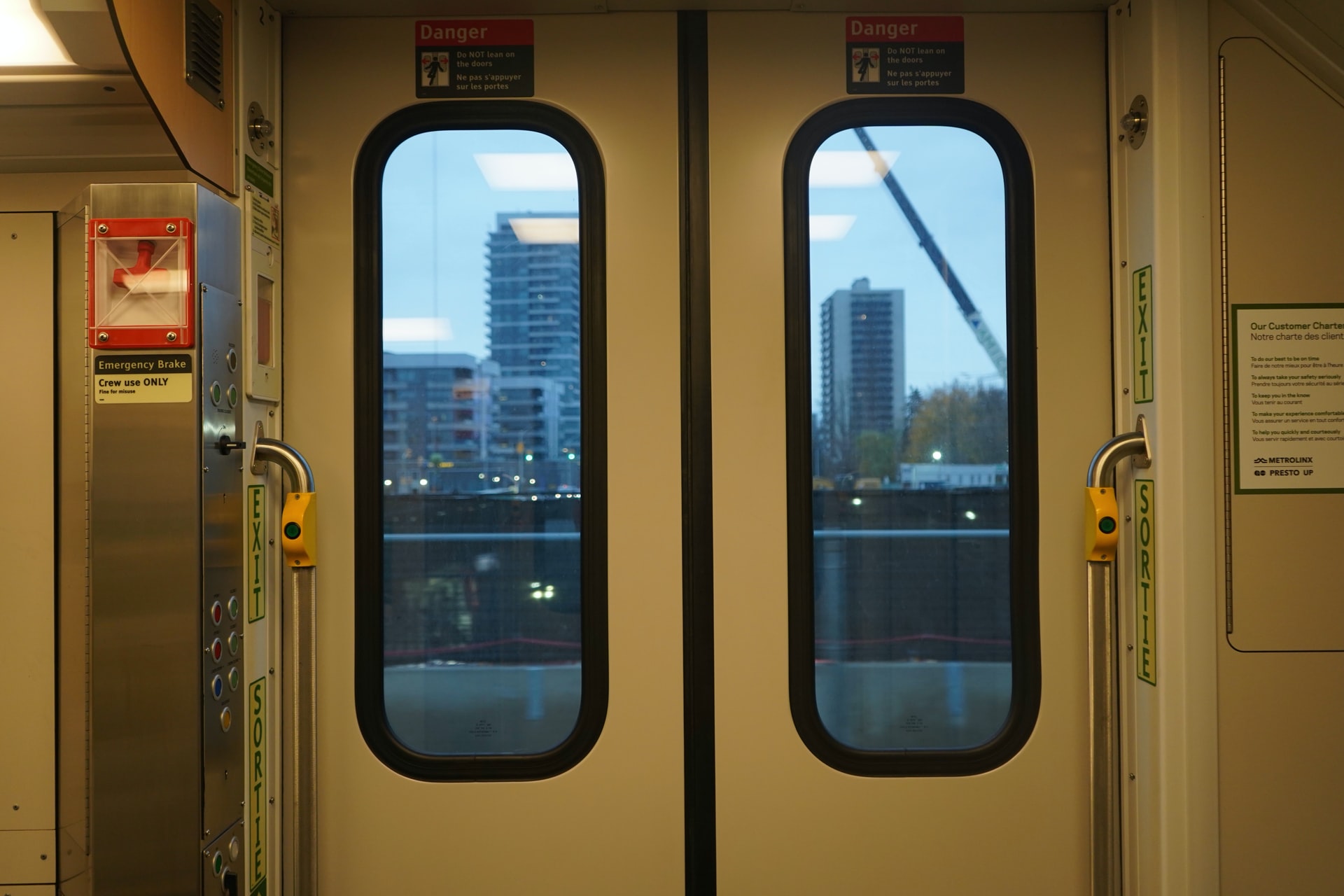
When Queen’s Park funds buses, GO trains and light rail, it’s not just the province’s million-plus transit users who benefit; we all do, including folks who drive a car. (Photo: Anita Cavalcanti via Unsplash)
Everyone knows COVID-19 has had a devastating effect on Ontario’s public transit systems.
Ridership has dropped by about half compared to pre-pandemic levels, and the Ontario Public Transit Association says that with each 10 per cent drop transit agencies across the province lose $245 million.
But this year’s provincial budget — which could be delivered within weeks — offers the government an opportunity to help transit recover and improve the lives of all Ontarians.
When Queen’s Park funds buses, GO trains and light rail, it’s not just the province’s million-plus transit users who benefit; we all do, including folks who drive a car.
Transit agencies need money for both service expansion and basic day-to-day operations. But this budget’s priority should be the latter. To get the system back on its feet, the province needs to spend generously on things like vehicle maintenance, station disinfection and hiring drivers.
. . . this year’s provincial budget — which could be delivered within weeks — offers the government an opportunity to help transit recover and improve the lives of all Ontarians.
Public transit is vital for many reasons.
First, it helps tackle the climate crisis. Ontario’s largest source of greenhouse gas emissions is transportation, much of it from trucks and cars. The province won’t meet its greenhouse gas reduction targets unless it shifts many of these motorists to transit, especially light rail and electric buses.
Transit is important for public health. In addition to its obvious contribution to clean air, it promotes physical fitness by typically requiring transit users to cycle or walk to a station or bus stop. The Canadian Association of Physicians for the Environment notes that, “By increasing your levels of physical activity, transit use can reduce your risk of chronic diseases such as heart disease, stroke, diabetes, and some cancers.”
Transit is crucial to our post-pandemic economic recovery. If bus and rail systems falter, thousands of workers will be unable to reach their workplaces and untold numbers will be unable to purchase goods and services. Traffic congestion — which already costs the GTHA economy up to $11 billion annually — will become far worse. This is a recipe for economic disaster.
Transit is crucial to our post-pandemic economic recovery.
Transit also creates a significant amount of employment. A 2019 Navius Research report estimates Canada has the equivalent of more than 121,000 full-time transit jobs. Transit systems give work to bus drivers, subway operators and sanitation staff, while major expansion projects create construction jobs and work for land surveyors, geologists, electricians and managers.
Ontario factories produce light rail vehicles. A CUTA policy paper reminds us, “Canada is a major producer and exporter of transit equipment, so a high proportion of transit investment remains in Canada and creates spinoff employment in manufacturing and related industries.”
Importantly, money invested in transit generates far more employment than money allocated to highway-building. An April 2020 report from the World Resources Institute found “spending on public transportation creates 31 per cent more jobs per dollar spent than spending on new roads.” (This is another reason why Ontario should abandon Highway 413.)
A November 2021 EKOS poll found that 72 per cent of Ontarians agree the provincial government should help transit agencies cover operating expenses.
Finally, transit enjoys enormous public support. A November 2021 EKOS poll found that 72 per cent of Ontarians agree the provincial government should help transit agencies cover operating expenses. Interestingly, even among car drivers, support stands at 69 per cent.
Generous funding in Budget 2022 would allow transit to bust congestion, tackle the climate emergency and create good local jobs. It would help Ontario recover from the pandemic and, in the near future, to prosper.
This op-ed was originally published in Mississauga News
Our work
Always grounded in sound evidence, the David Suzuki Foundation empowers people to take action in their communities on the environmental challenges we collectively face.






